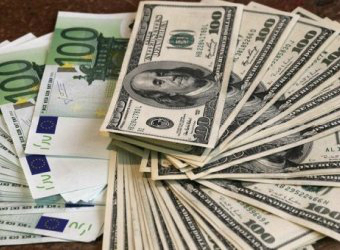The Washington Post, citing unidentified sources, reported on Tuesday that Senate Republican leaders are considering a one-year delay in the implementation of a major corporate tax cut to comply with Senate rules.
The dollar had risen to a three-month high against a basket of currencies late in October, helped by expectations that reforms initiated by U.S. President Donald Trump’s administration would deliver tax cuts, boost the economy and lift interest rates.
Any potential delay in the implementation of tax cuts, or the possibility of proposed reforms being watered down, would tend to work against the U.S. currency.
“The dollar is being sold against a wide variety of currencies like the euro, yen and Australian dollar on the Washington Post’s report,” said Yukio Ishizuki, senior currency strategist at Daiwa Securities in Tokyo.
“We won’t be seeing big economic indicator releases for a while and the new Federal Reserve chair is already decided. So the U.S. tax plan has moved into the spotlight, and currencies are likely to move this way and that way on news headlines.”
The dollar was down 0.3 percent at 113.660 yen, falling away from an eight-month high of 114.735 touched on Monday.
The euro rose 0.15 percent to $1.1602, bouncing from a three-month low of $1.1553 plumbed overnight.
The common currency has slipped steadily over the past few weeks, pressured by the divergence in the monetary policies of the European Central Bank and the Federal Reserve.
The dollar index against a basket of six currencies dipped 0.1 percent to 94.815 as U.S. Treasury yields continued to decline.
The Australian dollar gained 0.15 percent to $0.7656 to recoup some of the losses from the previous day, when it lost 0.6 percent on the back of declining commodity prices.
The New Zealand dollar added 0.15 percent to $0.6912 after losing 0.6 percent the previous day.
Near-term focus was on the Reserve Bank of New Zealand’s policy decision due early on Thursday.
Analysts say benign data of late would often prompt the central bank to express its confidence in the economy, although the recent change of government adds a significant degree of uncertainty. Source: Reuters
Source: Reuters


